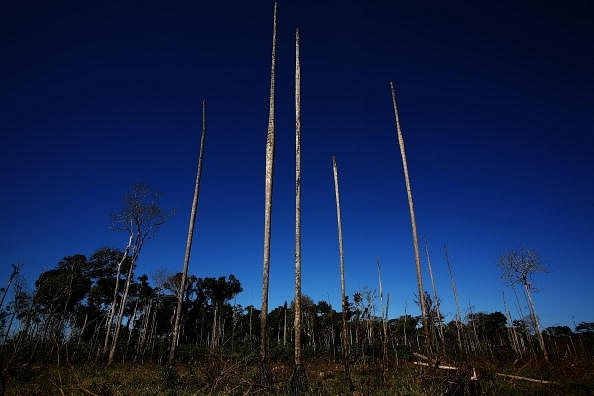
What’s Happening In Amazon Is Not Amazing. Here’s Why...
The obliteration of Brazil's Amazon rain-forest touched its highest level in 10 years this year, showed data released by the government on Friday (23 November). This is driven by illegal logging and the infringement of agribusiness on the forest. Satellite pictures for a year through the end of July 2018 demonstrated that 7,900 square kilometres (3,050 square miles) of the forest was cleared in the Amazon, equal to half of Jamaica. That was a 13.7 per cent expansion from a similar period in the earlier year, reports The New Indian Express.
Deforestation is a critical factor behind global warming, representing around 15 per cent of yearly emissions of heat-trapping gases, like that of the transportation sector. On Friday, a US government report discovered that environmental change would cost the United States billions of dollars before the century's over.
Brazil's environment minister Edson Duarte said in an explanation that illegal logging was the primary factor behind the expansion of deforestation in the Amazon. He approached the administration to increase their policing of the forest.
The conditions of Pará and Mato Grosso were the most significant contributors to the deforestation increment. Mato Grosso is Brazil's best grains producer, driving Brazil's booming soybean yield.
Brazil's Climate Observatory, which is a network of non-governmental organizations, said in a different proclamation that the expansion was not an astonishment. Other than illegal logging, it said Brazil's growing commodities sector was contributing to forest destruction as agriculturists looked to expand.
In spite of the ongoing ascent, deforestation remains strongly beneath the dimensions recorded in the mid-2000s, before the Brazilian government propelled a methodology to battle deforestation. In 2004, for instance, more than 27,000 square km was cleared, a zone the span of Haiti.
Researchers think about the Amazon as one of nature's best securities against a worldwide temperature alteration, as it goes about as a mammoth carbon "sink" by retaining the gas. The forest is, likewise, wealthy in biodiversity, facilitating billions of species yet to be considered.